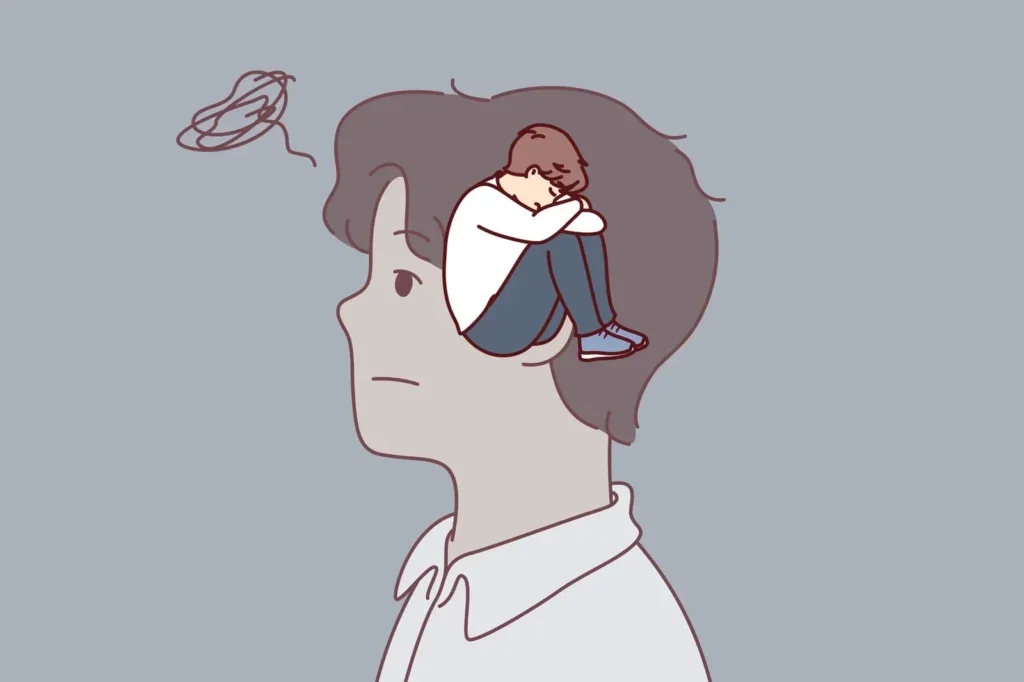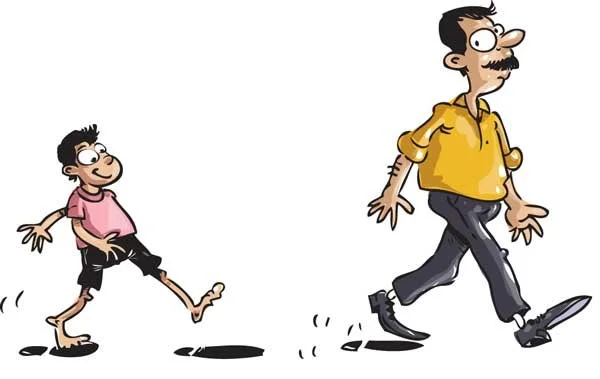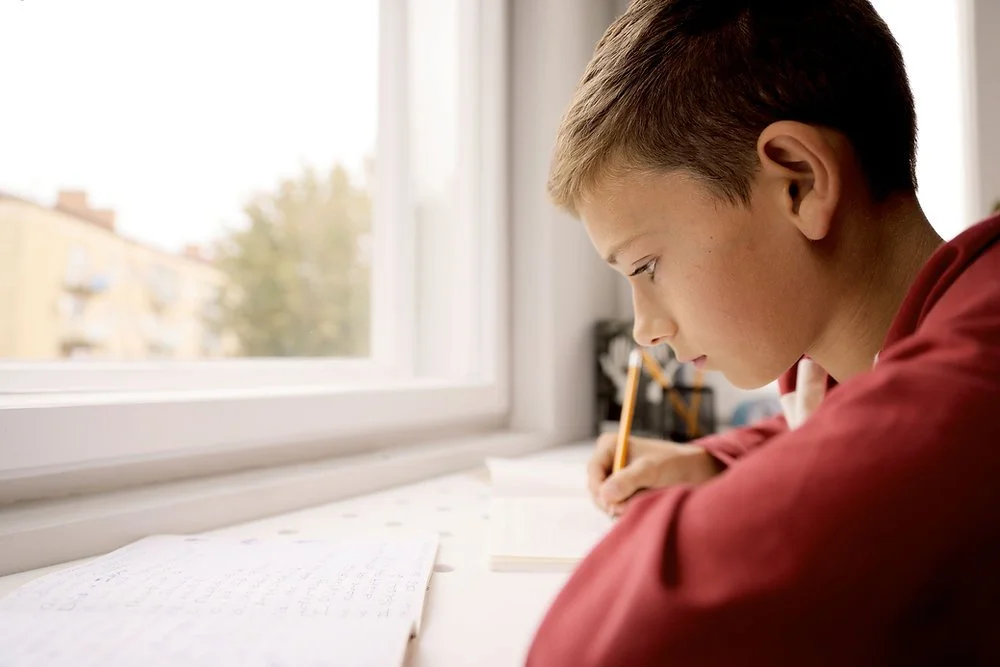7 Things I Wish I Knew 18 Years Ago
Nothing prepares you for parenthood. Nothing. It strips you of all of your resolve, and you’re left with the crumbs of humble pie to eat every single day. You think you’re patient—have a kid. You think you’re selfless—have a kid. You think you have peace that can’t be penetrated—have a kid. What’s your point, Maria?
Oh yeah, that part. My point is that whether you read What to Expect books and all the baby and children psychology guidance the virtual bookstore offers, or you’re like me and experienced being a teen mother—parenting makes a beginner’s fool out of all of us.
I was shocked when my mother read Brooke Shields’ book Down Came the Rain and told me how Brooke revealed that motherhood was such a dark chapter for her because she hit a depression and didn’t know how to be around her baby without having unstable thoughts. I thought to myself… but she did it the right way—in her 30s and married. I was a teenager, and I assumed that my sadness and feelings of inadequacy could be traced to the number of candles on my birthday cake.
However, I learned that day the hidden truth no one shares until it’s too late: parenthood (if you give it 100%) will strip you of everything you thought you knew for sure and introduce you to several new versions of yourself—the fearful version, the tired version (you think you know what tired is until you’re awakened every 90 minutes in the middle of the night and have to actually be nice and coo), and finally, the version of yourself that is co-parenting—oftentimes with someone who parents differently—which introduces a whole new level of personal hell.
It’s a whopper of a journey to embark on, and yet it’s one of the best parts of my life and my soul. Being a mother is very much a part of my identity. My daughters are 16 and 17 and still call me Mami… they’re my little ducks, and the hardest parts of raising them have morphed into a crown that sits on top of my curls. You can’t see it, but I can. And if you are reading this and you’re a parent… you’ve given your all through the years, adjust your crown, dear reader—there’s one atop your head too. A crown of endurance. A crown of unconditional love. And jewels that twinkle, marking all the moments when you chose your children’s happiness and comfort over your own.
As you read, I was a teen mom. I got married when I was 16 and divorced at 22. Parenting alone has been the university of mental agility that I never knew I had enrolled in until I started passing tests. In the beginning, I stumbled through the courses because I was in survival mode. I wish I could go back to 2007 and have a cup of tea with the 17-year-old me. She was scared and pretending not to be. I’d hold her hand and say, you’re doing great. Even though I know she didn’t feel like she was. I’d tuck her hair behind her ear and share these 7 things that I wish I knew 18 years ago…
You ready, dear reader? Here we go.
1. Your childhood trauma will come out in ways you least expect.
Whatever made you feel shortchanged in life, you will try to overcompensate by making sure your children do not experience this. Beware of this natural tendency. I am not saying that you shouldn’t try to prevent pain that you went through—of course not. What I am saying is that the discomfort and times when you felt alone created a resolve that serves you mightily today. Make sure your attempt to protect does not become a cage of comfort, making it very difficult for them to develop their own wherewithal.
Backbones aren’t created in times of peace. They are created during the mini battles in our mind when we have to get something done for ourselves or it won’t get done, when we have to speak up for ourselves because no one has, and finally when we experience the consequence of not caring enough to make sure we stay on an upward path and things take a turn for the worse. So honor your past, and remember to let your children face their own small battles—because that’s how they grow strong, resilient, and capable of standing on their own.
2. Your children will mirror the parts of yourself that you’re trying to get rid of.
They say more is caught than taught, and this couldn’t be more true. Our kids develop their own personalities and tendencies, yes. But because of the nature of parenting, which involves a process of mimicking behavior, they follow the leader even before they realize it. It’s important to realize that you’re never not leading as a parent. If you have one glass too many—you’re still leading. If you don’t prioritize fitness… if you are in a volatile relationship… if you’re caught up in games, if you’re a workaholic, you are still leading.
Sometimes we can feel like we’re only leading when we are practicing our highest behavior, or when we say, “Hey, watch me do this.” But it’s quite the contrary. Whether you are climbing a ladder or descending into toxic behaviors, they are following right behind you, holding your hand. By leading them to these places, you are effectively saying—these places are where you belong. So take a gander at where you are taking your children every day, because when they grow up, they are going to visit the same spaces and may even take their own children just because it’s familiar. So, lead with courage and take them to the world you want them to build a home in.
3. All nostalgia is forever etched into the Smithsonian walls of their little minds.
Watch the old movies, read the classic books, visit your childhood home, dance in the rain, eat snow and throw snowballs. Wholesome and free memories create a safe space in the brain that our children will be able to tap into throughout their entire life. When life gets tough for them, which one day it will, these precious moments with you will serve as a loving pillow, giving their thoughts a rest. It’s important to remind our children that there’s more to life than iPhones and costly excursions. Sit back, enjoy the simplicity of doing free things that will fill into a spring of happy nostalgia in their hearts.
4. Yes and No are non-negotiable.
This is a biggin’ for me—my mom uses that word to describe something that seems insurmountable. If your yes and no are not ironclad, then nothing else is in their universe. After all, if you don’t have belief in a parent’s answer, life can become gamified. Everything is flexible and cloudy with a chance of meatballs. They will have no respect for a salient answer or consequence and thus will be ill-prepared for just how ironclad life’s answers can be. In the real world, when you don’t get the job, you really didn’t get it. You can’t send them flowers and a “please reconsider” note. When you get cheated on and dumped, that’s it—you gotta move on. Sticking to your word and not allowing yourself to be wishy-washy will prepare them to accept their reality when they’re on their own.
5. Punishment should involve mental work.
In the old days, when a kid did something wrong, they’d end up with a red backside and little guidance or attention paid toward resolving how to prevent this behavior in the future. It’s like prison. Unfortunately, locking someone away doesn’t exactly give them the tools they need to rehabilitate. The Bureau of Justice Statistics (BJS) reports that 68% of released prisoners were arrested within three years, and 79% within six years, based on a 2018 study. This proves that it’s not enough to make a consequence painful; it must be made constructive and used as a platform to teach a valuable lesson. The best bit is that this method can be applied at any age.
For a toddler, it might look like sitting them down and having them sort a whole box of toys back into the right spots—blocks with blocks, cars with cars, dolls with dolls. It takes time and patience, but it teaches them that making a mess means taking responsibility for cleaning it up.
For a teen, you could have them write a 3-page essay on why their choice was wrong and what they would do differently next time. It’s not quick or fun, but it makes them stop, think, and actually connect their actions to real consequences.
6. Show affection when they least expect it.
Our children are sponges for our love, support, and attention. It’s important to show them that warmth and adoration shouldn’t always be connected to hard work or positive behavior. They need to know and feel their worthiness regardless of what’s going on. I don’t think we can ever overestimate the power of showing our kids love. It’s not just about hugs and kind words in the moment—it’s shaping who they’re becoming and even protecting their health long-term.
One study I came across was done by researchers from the University of Edinburgh, Duke University, King’s College London, and the University of Otago. They studied identical twins to rule out genetics, and what they found was incredible: kids who received more warmth and affection between the ages of 5 and 10 were, by age 18, more open, conscientious, and agreeable. Affection helped raise kinder, more grounded young adults.
And it goes even deeper. The Coronary Artery Risk Development in Young Adults (CARDIA) study looked at adults who reported childhood abuse and early stress. They found that parental warmth and affection in childhood were linked to lower health risks later on—things like heart disease, metabolic issues, and more. In other words, love literally helps buffer the body against long-term stress.
Every hug, every encouraging word, every moment we slow down to be present with our kids is building both their future character and their lifelong health.
7. Self-care isn’t selfish.
For the first three years of being a mother, I didn’t wear a stitch of makeup, I didn’t work out, I barely ate, and on top of that I was working full time and going to school online. I didn’t think I had time to do anything—let alone make myself look cute or feel extra relaxed. My youngest daughter had colic for four months when she was born, and that’s when I really let go of myself. Her incessant crying made me feel like a zombie waiting for the apocalypse to end.
I wish I had taken the time to schedule a massage for myself, to make myself feel beautiful every day, to meet with a counselor and talk through my lowest thoughts. There are 24 hours in a day. Dear reader, take two of those hours for you.
Do something fun with one and do something personally constructive with the other. The world will still turn, the sun will still rise. And you will not wake up to dystopia if you reserve two hours to pour back into yourself on a daily basis. If you don’t have the time currently, make the time. Why? Because mental, emotional, and physical health is your true wealth on this planet.
Sure, whatever you have in the bank is nice, but if you’re burnt out or sick from self-neglect, then all that money and the trappings are moot.
I recently came across a study in Nature Reviews Cancer (Thaker et al., 2007) that really brought this home. It showed that stress hormones—things like cortisol and norepinephrine—can actually make it easier for tumors to grow and spread. How? By creating new blood vessels that “feed” the tumor and by weakening the immune system, which is supposed to fight off those cancer cells in the first place.
In short—stress can actually kill you. So put yourself back on the calendar and protect that time like it’s your sacred health investment. Maybe it’s the morning or evening. You know when you can pencil YOU in. Because the only way we can consistently show up for our precious children is by first consistently showing up for ourselves.
I hope these words of learned lessons and encouragement serve you in some way. And by the way, your golden crown looks gorgeous. Don’t ever forget that it’s on your head, and that you are a regal masterpiece. You were hand-picked by God to raise the future Kings and Queens of your family.
Until next time,
Maria 🌹







